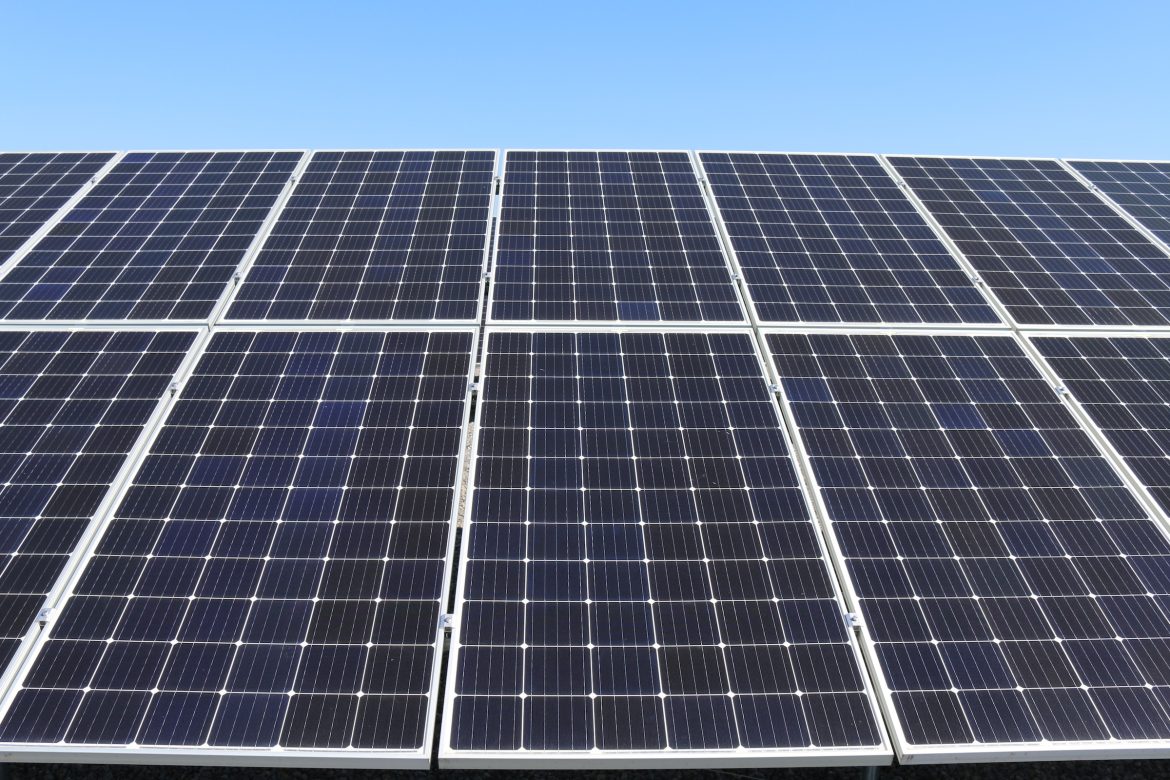361
GWK’s Christiana maize mill has successfully installed a 1 MW solar photovoltaic (PV) system, marking a significant step towards sustainable energy use in the agricultural sector. This innovative project aims to reduce the mill’s carbon footprint and operational costs while promoting renewable energy adoption in South Africa.
The solar PV system, now operational at the Christiana maize mill in the North West province, is expected to generate sufficient electricity to meet a substantial portion of the facility’s energy needs. By harnessing solar power, GWK aims to enhance energy efficiency and sustainability in its milling operations, setting a precedent for other agricultural businesses in the region.
Johan Delport, GWK’s Energy Manager, expressed enthusiasm about the project, highlighting its environmental and economic benefits. “The installation of the 1 MW solar PV system is a milestone for GWK. It demonstrates our commitment to reducing our environmental impact and optimizing our energy consumption. This initiative will not only lower our carbon emissions but also significantly reduce our energy costs, contributing to the overall efficiency of our operations,” Delport stated.
The solar PV system comprises advanced solar panels and inverters, designed to maximize energy capture and conversion efficiency. The project, which took several months to complete, involved meticulous planning and collaboration with renewable energy experts to ensure optimal performance and integration with the existing energy infrastructure of the maize mill.
GWK’s investment in solar energy aligns with South Africa’s broader goals of increasing the share of renewable energy in the national energy mix. The government has been encouraging businesses to adopt sustainable energy solutions to mitigate the effects of climate change and reduce dependency on fossil fuels. By implementing this solar PV system, GWK contributes to these national objectives and supports the transition towards a greener economy.
The Christiana maize mill, a critical facility for GWK, processes large quantities of maize annually, playing a vital role in the agricultural supply chain. The adoption of solar energy is expected to enhance the mill’s operational reliability by providing a stable and cost-effective power source. Additionally, it will help shield the mill from fluctuations in electricity prices and supply disruptions, which have been a concern for many South African businesses.
Local community members and environmental groups have lauded GWK’s initiative, viewing it as a positive step towards sustainable development. The project not only benefits the environment but also has the potential to create jobs and stimulate local economic activity through the installation and maintenance of the solar PV system.
The successful implementation of the 1 MW solar PV system at the Christiana maize mill serves as a model for other agricultural enterprises looking to adopt renewable energy solutions. It showcases the feasibility and benefits of integrating solar power into industrial operations, paving the way for more widespread adoption across the sector.
In conclusion, GWK’s Christiana maize mill’s new 1 MW solar PV system represents a significant achievement in sustainable energy use within the agricultural industry. By reducing carbon emissions and energy costs, GWK is leading the way in promoting renewable energy adoption and contributing to South Africa’s environmental and economic goals.
Source of this article: engineeringnews.co.za
The solar PV system, now operational at the Christiana maize mill in the North West province, is expected to generate sufficient electricity to meet a substantial portion of the facility’s energy needs. By harnessing solar power, GWK aims to enhance energy efficiency and sustainability in its milling operations, setting a precedent for other agricultural businesses in the region.
Johan Delport, GWK’s Energy Manager, expressed enthusiasm about the project, highlighting its environmental and economic benefits. “The installation of the 1 MW solar PV system is a milestone for GWK. It demonstrates our commitment to reducing our environmental impact and optimizing our energy consumption. This initiative will not only lower our carbon emissions but also significantly reduce our energy costs, contributing to the overall efficiency of our operations,” Delport stated.
The solar PV system comprises advanced solar panels and inverters, designed to maximize energy capture and conversion efficiency. The project, which took several months to complete, involved meticulous planning and collaboration with renewable energy experts to ensure optimal performance and integration with the existing energy infrastructure of the maize mill.
GWK’s investment in solar energy aligns with South Africa’s broader goals of increasing the share of renewable energy in the national energy mix. The government has been encouraging businesses to adopt sustainable energy solutions to mitigate the effects of climate change and reduce dependency on fossil fuels. By implementing this solar PV system, GWK contributes to these national objectives and supports the transition towards a greener economy.
The Christiana maize mill, a critical facility for GWK, processes large quantities of maize annually, playing a vital role in the agricultural supply chain. The adoption of solar energy is expected to enhance the mill’s operational reliability by providing a stable and cost-effective power source. Additionally, it will help shield the mill from fluctuations in electricity prices and supply disruptions, which have been a concern for many South African businesses.
Local community members and environmental groups have lauded GWK’s initiative, viewing it as a positive step towards sustainable development. The project not only benefits the environment but also has the potential to create jobs and stimulate local economic activity through the installation and maintenance of the solar PV system.
The successful implementation of the 1 MW solar PV system at the Christiana maize mill serves as a model for other agricultural enterprises looking to adopt renewable energy solutions. It showcases the feasibility and benefits of integrating solar power into industrial operations, paving the way for more widespread adoption across the sector.
In conclusion, GWK’s Christiana maize mill’s new 1 MW solar PV system represents a significant achievement in sustainable energy use within the agricultural industry. By reducing carbon emissions and energy costs, GWK is leading the way in promoting renewable energy adoption and contributing to South Africa’s environmental and economic goals.
Source of this article: engineeringnews.co.za



